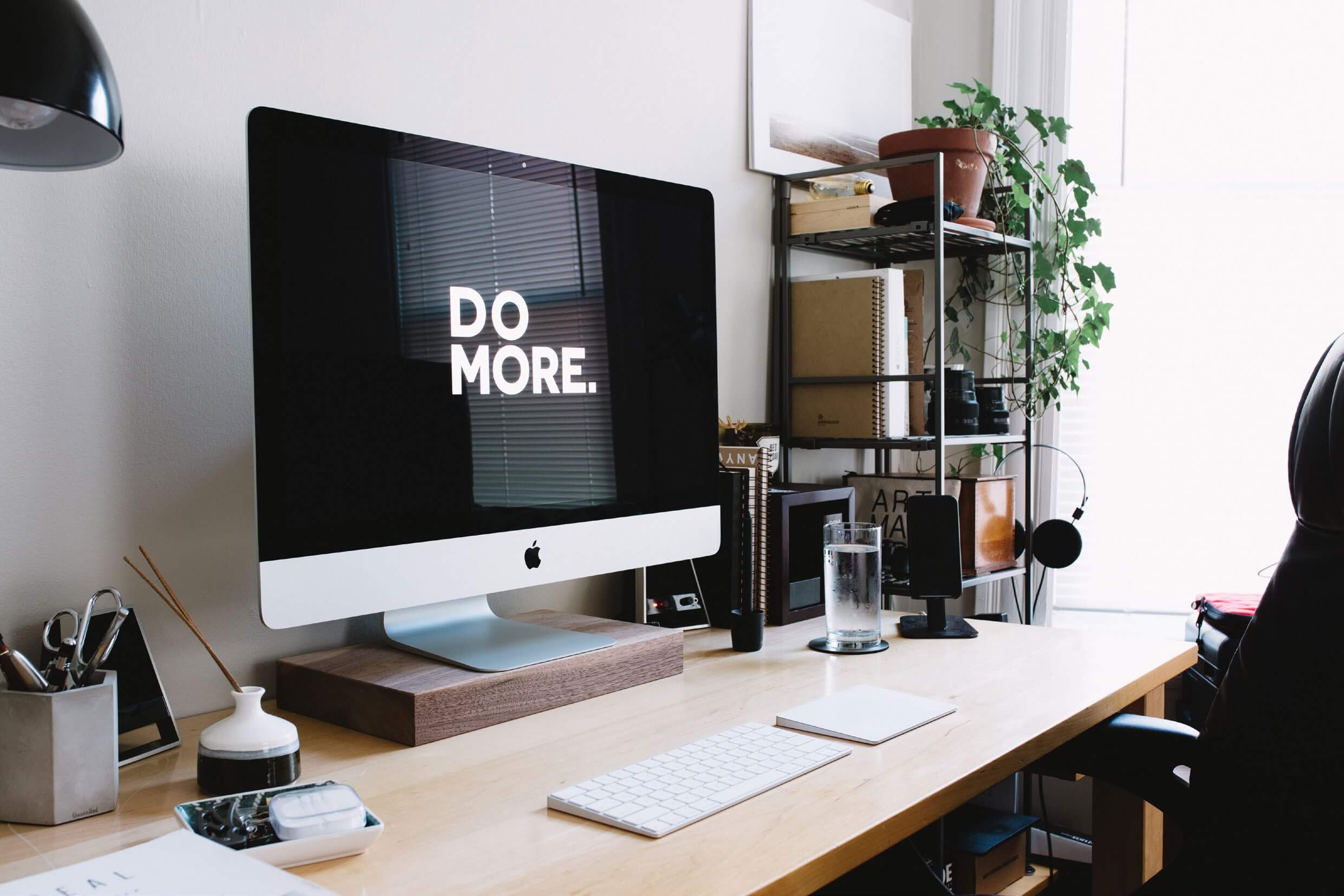Why purpose-driven social impact matters?
The latest business trend highlights consumers taking notice of companies embracing ‘social impact’ across their business operations, specifically Generation Z now coined the “socially-conscious generation”. Research demonstrates 76% of Gen Z customers claim they have purchased or would consider purchasing from a brand to lend support regarding issues that the company was also supporting, specifically those aligned to their core values.
Social enterprise ideas, unlike conventional business ideas, typically result from a desire to solve a social need intentionally addressing social problems, improve communities and benefit our environment. These are companies who consciously and systemically attempt to solve a local need or improve the conditions of a pressing global community challenge. Social impact companies are committed to ensuring their supply chains are economically sustainable, as well as growth in philanthropy.
Environmental sustainability is also in the mix – in fact scientists are warning that we have less than a decade to take action to prevent an irreversible climate and ecological crisis.
Additionally, social impact incorporates business’s practices and policies related to working conditions, diversity in hiring, including opportunities for advancement for women and minorities, lack of discrimination, employee wages, work breaks, safety and training. A business model promoting autonomy, mitigating any unnecessary disenfranchisement.
Harvard Business School released studies illustrating that in recent years there has been the creation of thousands of businesses across the globe providing goods and services to consumers at the base of the socio-economic pyramid. This influx has been accompanied by the emergence of new approaches to investing specifically dedicated to generating significant social impact.
Today’s young leaders and the next generation of high net worth individuals aiming to build their businesses and invest their wealth in endeavours to fight hunger, increase clean water supply, improve education and healthcare to the world’s poor and end homelessness.
Furthermore companies who ensure their supply chain procure supplies and products produced responsibly and ethically. Sustainable businesses will make reasonable efforts to guarantee they are not purchasing from suppliers engaged in the use of sweatshops, child labour, or other human rights abuses.
With social enterprise on the rise it is facilitating a new way of conducting business which is more inclusive and more equitable, with tangible outcomes in terms of products, services and employment, collectively wrapped up with a strong, stoic sense of mission.
Large-scale institutional investors are highly attracted to these “win win” businesses examining how to generate a positive social return at market rates of return. In addition, think about it from a consumer perspective – they have money to spend. Wouldn’t you rather spend that money knowing you’re also benefiting a greater cause and leaving our cities and communities in better shape for future generations. It makes excellent business sense to build a company around social issues whilst improving health and longevity.
However, trading with purpose, delivering value and making an impact in the interest of communities is complex.
Social Trader’s certification has facilitated greater identification and visibility to social enterprise, providing government and businesses a more seamless option to buy products and services from social enterprise suppliers and improve procurement policies and practises – as well as bring about change.
The social enterprise sector in Australia is fragmented and our ecosystem is far less developed compared with some other countries, such as Scotland and Canada.
If momentum is gaining regarding customers making conscious purchasing decisions regarding supporting companies embracing a socially impactful desired outcome, how do we cultivate transformative and scalable ideas, educate the community and raise the profile of social enterprise? And…. how does this impact your business?

What does this shift in consumer thinking mean to business owners?
The social impact emergence is a quickly developing movement, presenting numerous opportunities for business owners. The social economy is changing in Australia and the momentum how we fund and deliver social outcomes is gaining.
Driven by a deeper purpose beyond profit, social entrepreneurs solve social issues through innovation by creating systematic changes that are often disruptive.
According to Impact Boom, the need for Australian businesses to think more audaciously is a work in progress to develop:
- deeper cross-sectoral collaborations to create larger impact
- continued work towards development of a National Social Enterprise Strategy
- greater buy-in and support for social enterprise development from government
- a conducive long-term policy environment to support social enterprise development in Australia
- the need to address the missing middle of capital for social enterprise growth.
Sharon Zivkovic, Founding Member, Adelaide Social Enterprise cites
“It is such an exciting time for the social enterprise sector in Australia. While we’ve been a bit late off the mark compared to some countries, the Australian sector now is strengthening at an extraordinary pace.”
Australia has never been better placed to solve complex social problems leveraging a social enterprise platform. Social impact initiatives are evolving and businesses are realising they don’t have to choose just one way to engage in community-minded activities. Businesses can fill a “gap” and employ a blend of the above cited methods that better meet their mission and assist to further build their company brand reputation.
Why purpose-driven social impact impacts your business
Social enterprise framed around a big-picture facilitates exponential business growth.
A social impact business motivates top talent. Millennials are more willing to work for companies that design actions directly related to their core business. Furthermore, a strong company purpose and image, aligned with employees core values, is one of the most influential motivators to build team leaders within your business. Acquiring and retaining quality people resources has become more challenging since the global pandemic.
Additionally, a recent study by Accenture highlighted customers are more likely to spend money with a company when they adopt corporate social responsibility (CSR) and if their brand promise reflects issues that matters to the consumer.
Position your brand in a way that your ideal customers can relate – highlighting why you’re relevant and how you are solving their problems – by considering their situation, desires and wants, addressing and speaking to their needs.
Research has demonstrated there is a direct correlation between a brand’s CSR imprint, brand loyalty and its economic performance.

Where there’s no margin, there can be no mission
Investors lean towards worthy investments. Investors want to generate environmental and social positive impact, in addition to gaining financial returns. Businesses must thrive and respond to community needs, afterall doing good for community makes good business sense.
The key for businesses is to facilitate business principles which simultaneously seeks economic profitability, social impact and environmental sustainability – in a highly-visible, meaningful way.
Coraggio’s, CEO, Richard Skarzynski shares,
“We are moving into a new landscape with the current state of the social enterprise sector addressing some of Australia’s most pressing social and environmental issues. We need to focus on the challenges Australia faces by focussing on the whole problem, not just their own isolated parts.
We encourage our Member’s businesses to demonstrate involvement by transitioning from an industrial growth to a life sustaining economy incorporating social, environmental and community values. Businesses built around a social goal attracts clients aligned to the same beliefs.”
It is imperative to develop a social impact model that articulates your company’s hypothesis highlighting the best way to address your target social problem aligned with concise action for testing and measuring. Establishing industry partnerships and forging not-for-profit sector collaborations are essential to strengthening your operating model, reinforcing brand promise and scaling your business’ social impact.
Developing a framework to achieve social impact with clearly defined social and economic impact indicators will reinforce your business vision grounded in a set of achievable targets promoting a “triple-bottom line” and achieve social aims.
The ability for your business to be nimble and interweave profit with impact, assists businesses growth and the flexibility to experiment with innovation, which are both components of highly successful and sustainable Australian and global companies.
The human mind is one of the most powerful assets of any business
Founder and Director of Neue, Dean Brosnan and Coraggio Member focusses on local solutions enabling his business to retain and reinvest profits back into the local community, creating a virtuous cycle that empowers populations that are often disenfranchised.
Dean Brosnan cites,
“Who doesn’t want to make a positive community change whilst maintaining healthy commercial returns? Social responsibility is at the core of our bespoke lighting and creative designs, working with public and private sectors to create original community experiences by activating and reviving natural and man-made environments.”
Neuve values industry collaboration working with architects, urban designers, electricians and project managers to drive positive change and tangibly demonstrate socially responsibility by donating 1% of company turnover towards environmental causes.

More and more people are actively interfering with the business sector by generating a social impact through their activities. The following 5 entrepreneurs highlight unique ways to execute social entrepreneurship ideas.
| 1. Ruben Harris Career Karma |
He is the CEO and Co-Founder at Career Karma. It all begun in 2014 when Ruben and the other two members of the executive team, Timur Meyster and Artur Meyster moved to Silicon Valley to break into tech. In 2016 they launched “Breaking Into Startups” podcast to feature stories of people from non-traditional backgrounds and in 2018 was launched Career Karma mobile application. The community of Career Karma grew to 150.000 members in 2020. Career Karma offers free coaching and advice to people of different backgrounds and professions in order to better organise their careers. |
| 2. Robert Luo Mi Terro |
Robert Luo is the founder of Mi Terro. Its mission is to help protect the environment through the reduction of food waste. As far as food waste is concerned Robert Luo believes that “nothing is ever waste, but rather an opportunity”. Mi Terro turns spoiled milk into fibers for clothing. Consumers who are interested can shop online T-shirts, boxers. Mi Terro won second place in December 2020 at Global Agricultural Challenge launched by FAO, Zhejiang University and Pinduoduo. |
| 3. Topaz Smith EN-Noble | EN-Noble is a tech company focused on travel, equity, and authentic cultural immersions. Its vision is to improve global peacefulness and sustainable socioeconomics in culturally rich communities. Topaz Smith is the founder and CEO. EN-Noble provides advice to travellers for different destinations around the world supporting the sustainable tourism with unique experiences. |
| 4. Brendan Brazier & Mark McTavish Pulp Culture |
Pulp Culture is a cold pressed juice, wild fermented that is blended with adaptogenic teas, herbal infusions and super mushrooms. The last part of the production procedure includes the carbonation. The fully blended hard pressed juice is given a little fizz and sparkle to help excite the palate. The result is a zero-additive, zero-sugar, bone-dry beverage with 6 billion naturally-occurring probiotics, B vitamins, and 4.9% ABV. Brendan Brazier and Mark McTavish are both fitness-minded foodies. |
| 5. Dinesh Tadpalli incrEDIBLE |
IncrEdible show us the way to preserve nature by switching from plastic and eating our spoon. Through www.incrediblespoon.com customers can buy edible spoons in all flavours and shapes. For example you can find from oregano chili flavoured spoons to chocolate flavoured spoons. Chief Decision Maker and Co-founder, Dinesh Tadpalli shares with his partners the passion for sustainability trying to surmount the plastic problem. |
We are witnessing unprecedented momentum with social entrepreneurs manifesting to self organise and own the space in a way we haven’t seen before. These are some inspiring examples of positive change from successful global companies taking the lead to championing good causes – there’s no coincidence why they have ensuing market share:
Not only has Google pledged to donate $1 billion to non profits in just five years, but they also committed to 1 million hours of employee volunteering. In order to achieve this goal they offer paid time off for volunteer work, especially in roles where they can use their tech expertise to help a good cause. Google also has strong environmental and ethical initiatives, like how they’re committed to sourcing conflict-free minerals in 2012. They also impressively achieved 100% renewable energy in 2017 as the largest corporate buyer of renewable power.
Adidas
The famous producer of the ‘three stripes’ athletic wear prides itself on a corporate responsibility structure built on 3 complementary pillars: community involvement, employee engagement, corporate giving. An example of community involvement is the BOKS by Reebok, an Adidas company, before school program, which is designed to bring access to fitness to children between the ages of 5 and 12. The impact of BOK has been measured by an independent evaluator called NOIST which found that the students in the program has not only improved their memory and executive function, but also shaved an average of 16 seconds off their 400-meter run times.
Adidas has launched various programs and initiatives like these around the world; such as their Pakison Women Empowerment Program which helps improve the skills of female workers and helps them find strong opportunities in the workplace and their SOS Children’s Village which has grown into one of the largest non-governmental organisations dedicated to supporting children without families in the world. These amazing programs are a few examples of how Adidas makes a large positive social impact beyond great activewear.
Ben & Jerry’s
Since their inception Ben & Jerry’s has been connected to promoting grassroots efforts for social justice, protecting the environment, and supporting sustainable food systems. While often they connect their social initiatives to the process of making ice cream, like supporting Fairtrade, Ben & Jerry’s also partners with different social equality groups. One of their initiatives “Justice ReMix’d” focuses on criminal justice system reform and how people of colour are disproportionately affected. Their employees are also involved in the Ben & Jerry’s foundation where they serve on committees that review grants for grassroots organisations.
Disney
The Walt Disney Company believes that education is the key to opportunity and proudly supports its workforce by sponsoring the most comprehensive employer education program in the country. Launched in 2018, Disney’s Aspire initiative covers 100 percent of tuition costs and provides support services to employees as they complete their coursework, including onsite “study hall” spaces and private career coaching. Disney Aspire was launched to expand access to education for its cast members and The Walt Disney Company has pledged $150 million towards high school equivalency, English-language learning, vocational training, college and master’s degrees, and more. The resource allows access to eleven universities and technical schools- including online programs by the University of Arizona and the University of Central Florida and pays the tuition directly to the campus along with textbooks, materials, and other fees. More than half of Disney’s 90,000 full- and part-time hourly employees have taken the initial step to enroll. The Walt Disney Company views this effort as a commitment to build futures and uplift communities through workforce development and does not require that employees pursue an education which relates to the titles they hold with the company.
IKEA
IKEA focuses on bettering the lives of children through their social initiatives. In the 1990s, they began fighting child labor practices and have continued to support healthy living conditions for children since then. Since 2001 IKEA has donated over $200 million to UNICEF, to help supply a healthy environment, like access to clean drinking water, for children around the world. In 2016 the home brand also launched their “Let’s Play for Change” initiative that focuses on providing children a nurturing space to grow and develop in areas where they often lack a safe space to play.
LinkedIn achieves their social initiatives through a range of nonprofit partnerships and a commitment to sustainable practices in their offices. They have ambitious eco-friendly goals including being on the path to being “zero-waste” by improving their recycling and composting efforts. Their offices also use 80% renewable energy from wind and solar sources instead of harmful greenhouse gases. Employees get involved by commuting to work, with 70% of their global workforce using more eco-friendly forms of transport like biking, walking, and carpooling.
What is Coraggio?
Being a business owner can be challenging and may include facing unchartered territory. However, it doesn’t have to be lonely at the top. Making the right decisions for your business deserves more than the occasional conversation with a mate. It deserves to aggregate the experience and a shared knowledge of collective awareness from fellow executives.
Operating a social impact company typically presents complex issues, sometimes on a daily basis. Imagine if you could leverage the experience from an extensive group of industry peers to improve your decision-making and future proof a sustainable business, whilst being held accountable?
Also imagine if you gained the peace of mind to seamlessly access these answers and navigate business challenges, simply by connecting with entrepreneurs and gaining knowledge from business leaders? This is the strength of peer to peer leadership mentoring and impactful, meaningful networking.
Coraggio offers a mutual exchange of expertise, ideas and a support system enabling you to capitalise on a give-and-take dynamic amongst advisors who have walked the path before, mitigating risk to your business.
Leading business owners and entrepreneurs join Coraggio to become part of a highly effective business community facilitating leadership, guaranteeing accountability and sharing innovative ideas within a cohesive and confidential national network.
This mutual exchange of Member’s expertise tangibly results in sustainable revenue streams, increased cash reserves and productive outcomes to future proof your business.
Coraggio Chairs are industry leaders, Members are forward-thinking advisors and all Advisory Boards are dedicated to the ongoing success of their fellow Member’s businesses, offering Fearless Objective Advice – that’s the Coraggion Spirit!
Afterall, in the words of Henry Ford “If everyone is moving forward together, then success takes care of itself”.
Would you like to be a part of this?
Become an integral Member of a confidential group of business owners sharing their insights and experiences for the benefit of your business? Imagine how your business would prosper from connecting with a broader community consisting of more than 400 high performing and driven industry leaders!
Explore Membership today! Find out how our proven program can assist you build a better business and become a better leader.

